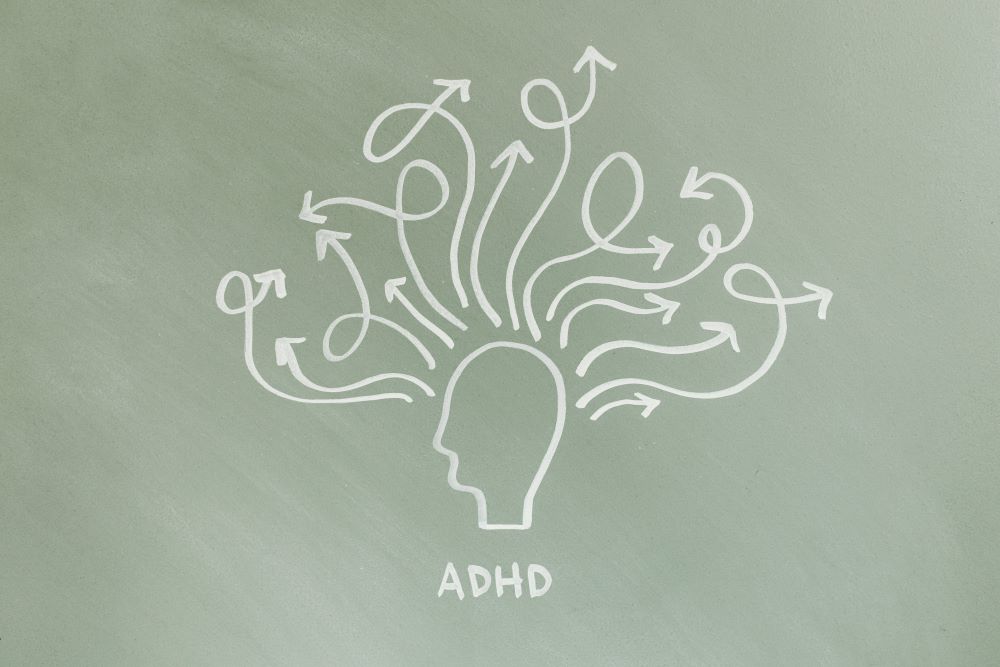Overtalking all the time could mean an individual is struggling with ADHD, ASD, bipolar disorder or another mental illness.
It can be easy for many people to begin excessively talking when they feel highly anxious or overwhelmed. If one’s mind is racing, oftentimes words come out without time to engage a filter. However, if speech feels pressured and excessive talking is something a person does every time they find themselves in conversation with others, this could be a sign of an underlying mental health condition such as bipolar disorder, autism or attention-deficit hyperactivity disorder (ADHD). Understanding that this is what’s making interactions difficult can mean finding proper treatment to manage symptoms and more easily build meaningful relationships with others.
Attention-deficit hyperactivity disorder is a neurodevelopmental disorder that presents with symptoms of hyperactivity, impulsivity, and inattention. One of the most challenging symptoms of ADHD is impulsive speaking, which can lead to social difficulties and, thus, a lack of self-confidence. Other symptoms of ADHD include forgetfulness, disorganization, fidgeting, and interrupting others. Because all of these symptoms can make relationship building tough, those with ADHD commonly harbor feelings of loneliness and being misunderstood.
Bipolar disorder presents both with episodes of depression and hypomania or mania. During manic episodes, individuals can struggle with what’s referred to as “pressured speech.” It’s termed this way, because it seems as if an individual cannot get their words out fast enough and commonly involves impulsive verbal interactions without cease. Pressured speech can also cause difficulty communicating effectively and excessive talking can lead to misunderstandings. Individuals experiencing full-blown mania also tend to engage in risky behaviors, experience delusions, and even lose touch with reality altogether, which can lead to profound legal, financial and relationship troubles.

Finally, overtalking can also be a trait of autism spectrum disorder (ASD), a mental health condition that can interfere with a person’s ability to develop successful social and communication skills. Because it’s a spectrum disorder, ASD can present with different functioning deficits of different severities. Overtalking can have negative effects on individuals with autism, particularly in social situations. It can lead to sensory overload and anxiety, which can make it difficult for individuals with autism to process information and engage in social interactions. Overtalking can also impede learning and development.
In each of these cases, “the impulsiveness is at the bottom of this,” said L. Eugene Arnold, a psychiatrist and resident expert at Children and Adults with Attention-Deficit/Hyperactivity Disorder (CHADD), an ADHD education and advocacy group. “[People] tend to act impulsively, speak impulsively and think impulsively.”
Specifically of autism, Andy Shih, chief science officer at Autism Speaks, said, “The typical social interactions between neur otypical individuals are more difficult for autistic people. In a typical conversation, you can pick up the cues about taking turns, when the question is ending, when the set of statements is ending, so that you can engage in an interaction. Sometimes with autistic people, it’s more difficult to pick up those social cues.” Moreover, he added, “Autistic people can find it difficult to transition from one conversation, topic or area to another. It’s more comfortable just to continue on something that they know about and just keep talking. It’s not a sign of rudeness or being narcissistic. It’s just the way their brains are wired.”
There are several strategies that can be used to easily manage excessive talking, with or without an underlying mental health condition. The most common strategy is practicing active listening skills. Believe it or not, this can be counterintuitive to common speech patterns in which individuals feel they need to interject throughout conversations. Active listening involves being present and truly hearing a person when they’re talking rather than letting one’s mind drift off. It also involves resisting the urge to turn the conversation around and redirect it focus. It becomes easier over time with focused intention and helps others feel cared about in the process.
Another way to manage overtalking is by introducing psychotropic medication into an overall treatment program. Medications can make a world of difference for individuals who struggle with mood stabilization and cognitive processing irregularities, making it much easier to communicate with others.


Join the conversation!